As a leading Custom...
The main factors affecting the wholesale price of tea cans
The key factor in the wholesale price of tea cans is still the relationship between supply and demand. Time, space, region, customs, religious beliefs, etc. will all have an impact. Specific issues need to be analyzed in detail. The influencing factors of the wholesale price of tea cans are also different. So this article focuses on the main factors that affect the wholesale price of tea cans. I hope everyone will like it. .
Three or six main factors affecting commodity prices
1. Main factors affecting the wholesale price of tea cans 1. Production cost
Under normal circumstances, the wholesale production cost of tea cans is the lowest limit of the transaction price. The transaction price is lower than the production cost, and the supplier is not only unprofitable, but also loss-making.
2. Main factors affecting the wholesale price of tea cans 2. Supply and demand
Under the conditions of a market economy, the wholesale price of tea cans is determined by the relationship between supply and demand. Market supply refers to the supply of commodities on the market. Market demand refers to the demand for consumers to have the ability to pay. When the supply and demand of tea cans on the market are basically in balance, the wholesale price of the tea cans will stabilize. If supply exceeds demand, its price will fall; if supply exceeds demand, its price will rise.
3. The main factors affecting the wholesale price of tea cans. 3. The market competition environment
The market competition environment can be divided into four modes: perfect competition, perfect monopoly, monopolistic competition and oligopoly. Different market competition environments have different effects on the formation of prices. As an individual in society, you will inevitably have disagreements with others, such as family members, colleagues, bosses, etc. How to deal with relationships and even conflicts with others and other organizations in society not only determines whether you can win the crown of success, but also determines whether you can lead a full and comfortable life. Even between countries, territorial disputes, and environmental issues need diplomatic negotiations; between parties, to resolve differences, need political negotiations; between companies, economic outsiders, need business negotiations; in life, between friends, need to communicate and negotiate ; The first date between boy and girl friends requires psychological negotiation. We can't feel it, but negotiation is everywhere.
4. Manufacturer's productivity affects the wholesale price of tea cans
The law of market value tells us that the value of tea cans is determined by the necessary labor time of the society that produces tea cans. The value of tea cans is inversely proportional to labor productivity. The value of the tea can is the basis of the price, and the price is the currency expression of value. The law of value stimulates tea can manufacturers to improve technology, improve business management, and increase labor productivity. The increase in labor productivity will inevitably shorten the necessary labor time for the production of tea cans, reduce the value of tea cans, and thus lead to a reduction in the wholesale price of tea cans.
5. Market competition affects the wholesale price of tea cans
Engels said: "Only through the fluctuation of competition. And through the fluctuation of commodity prices, the law of value of commodity production can be implemented." In a market economy, the market price of tea cans is formed in market competition. The competition among tea cans manufacturers is manifested in: producing the same tea cans wholesale producer, in order to make their own tea cans wholesale a more market share, try to use advanced technology, improve the quality of tea cans wholesale, create brand-name products, and at the same time do everything possible Reduce material consumption and shorten individual labor time. In this way, the wholesale producer of tea cans can obtain the brand-name effect, achieve "high quality and good price", or sell at a discounted price lower than similar tea cans in the market, thus making the enterprise invincible. Similarly, the competition between consumers, the shopping psychology of consumers and the shopping environment will all affect the price of tea cans. Such as the pre-holiday shopping boom, the panic buying trend that consumers were afraid of price increases in the early 1980s, and the higher prices of high-end consumer places than similar commodities in the market are all evidence.
6. The value of currency affects the price of tea cans
Money is a commodity that is separated from commodities and fixedly used as general equivalents. When general equivalents are concentrated on gold and silver, gold and silver become currency. Gold and silver are first of all commodities, which have value. After they become currency, they still have value, and their value is not fixed. The production of paper money replaced metal money. Currency as a measure of value will appreciate or depreciate due to the influence of many factors. Price is the currency expression of the value of a commodity. Therefore, the wholesale price of tea cans will naturally fluctuate with the rise and fall of currencies.
5. The issuance of banknotes affects the wholesale price of tea cans
The amount of banknotes issued in a country must be limited to the amount needed in circulation. If the issuance of banknotes exceeds the amount required in circulation, it will cause banknotes to depreciate and prices will rise, so the price of tea cans produced in this area will rise.
6. The state's price management and regulation affect the wholesale price of tea cans
The state's use of economic, legal, administrative and other means to manage and regulate commodity prices is an important aspect of the state's macro-control in a socialist market economy. For example, the state has formulated the "Price Law." For important commodities related to the national economy and the people’s livelihood, the state sets prices, or implements price limits, or sets guidelines and protective prices. For example, the state appropriately raises the price of iron ore and controls the import and export policies, which leads to the increase in the price of raw materials and thus tea cans. Increase in wholesale prices.





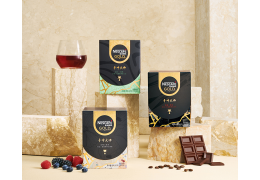
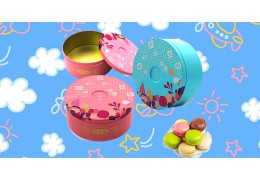


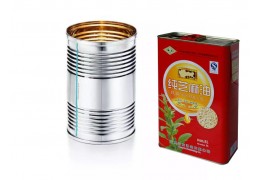



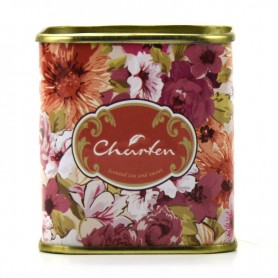

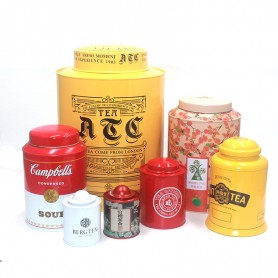
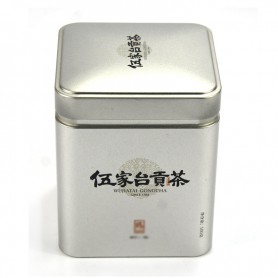

Latest comments